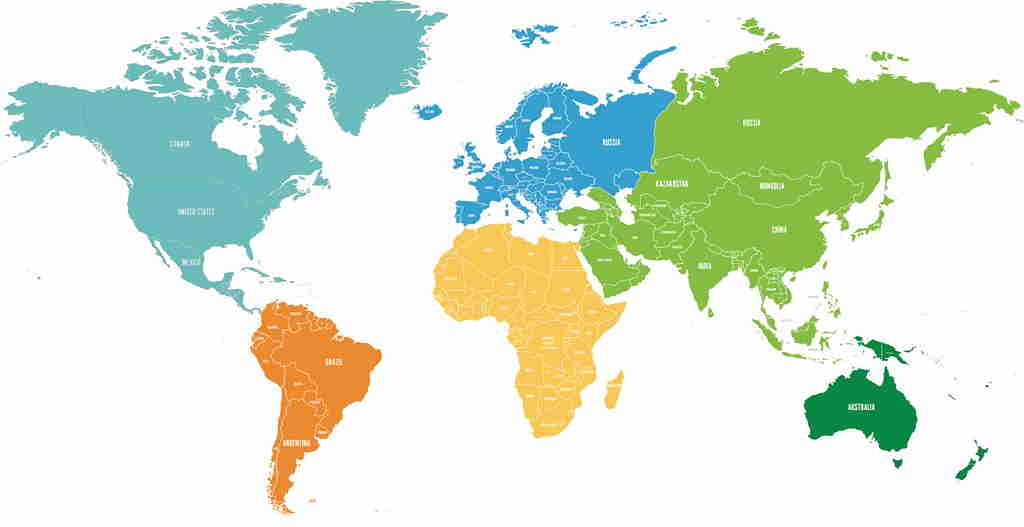




















Laws Around the World
The laws of all countries can loosely be divided into four groups: decriminalization, legalization, end-demand laws, and criminalization. Some countries have a mix of these legal structures, with provinces/states being able to decide their own governance regarding criminal laws (as we do here in the U.S.).
1. Decriminalization Supports the Health, Safety, and Rights of all.
This ideal policy would remove penalties for independent contractors (solo practitioners who are akin to housekeepers, caregivers for elderly or disabled people, or home-based hair stylists) as well as businesses (which have owners, waged employees, and discrete locations).
New Zealand, where prostitution is decriminalized, has the ideal model law for an entire nation. New South Wales, Australia, decriminalized prostitution in 1995, though it kept some restrictions in terms of locations where street-based work is permitted. Both of these regions consider prostitution a legitimate profession with recognized and enforced health and safety mechanisms like any other field of work.
2. Criminalization promotes exploitation.
Except for the regulated brothels in rural parts of Nevada, prostitution and related acts are criminalized everywhere in the U.S. This widespread criminalization keeps the sex industry underground; removes the ability of workers to exert their rights or redress wrongs/violence committed against them; and places people in a cycle of arrest and incarceration.
The idea behind criminalization is that the law will serve as a deterrent for the illicit behavior. As we have seen with alcohol, marijuana, and drugs generally, it is impossible and downright harmful to prohibit and punish behavior that is rooted in fundamental human needs and emotions; prohibition only serves to punish and stigmatize these behaviors rather than prevent them, the burden of punishments often weighing heaviest on oppressed populations.
As stated above, every state in the U.S. except Nevada has criminal laws prohibiting the exchange of sex for a fee, and various other related acts (such as loitering for prostitution, solicitation, promoting, etc.). Despite widespread criminalization nationwide, prostitution and all forms of sex work are widespread and flourishing throughout the nation.
In Thailand, prostitution is illegal, but also widely practiced, especially within the tourism industry. Numerous other examples abound, but the takeaway is that criminalization (prohibition) does not prevent prostitution — it simply drives it further underground and removes the rights of people engaged in the sex industry, creating heightened violence, discrimination, and stigma against sex workers and survivors of human trafficking. All the while, it provides a law enforcement tool to over-police populations such as women of color, transgender people, and people surviving poverty.
3. Legalization Doesn’t Solve the PRoblem.
A law that allows only brothels (licensed businesses at specific locations only) is called the “legalization” model. This policy, which describes Nevada’s law, represents a partially good law that should nevertheless be avoided, because prostitution in the privacy of hotel rooms or bedrooms should not be criminalized. The partial approach of “legalization” is akin to arresting your hairdresser neighbor who styles your hair in your home instead of her salon, or allowing alcohol consumption in bars but criminalizing it in your kitchen.
In a legalized regime, prostitution is permitted, but within the parameters of government regulation. Germany, the Netherlands, certain regions of Mexico, and Thailand have various iterations of legalization. Nevada is the only state in the U.S. in which there is no state-wide criminal penalty for prostitution, and some smaller counties have legal and heavily regulated brothels.
Selling sex is legal in Israel, but running a brothel is not. States in Australia have legalization of prostitution and, in some, running a brothel/sex services business is permitted and regulated.
In Holland, prostitution is legally regulated in certain locations (such as the Red Light District of Amsterdam), but sex workers are not permitted to freelance in their own homes or hotel rooms.
4. the “Nordic” model is Harmful.
Another type of partial measure is the “Nordic” or “Swedish” model, which imposes criminal penalties on clients but not sex workers. This isn’t even a compromise but rather a thoroughly bad policy, as it’s akin to allowing a store to sell alcohol but criminalizing the customers. (The result is that customers continue paying for sex in the criminal arena, jeopardizing the liberty of both parties and the safety of the community.)
While aligned with normative second wave feminist ideology, specifically the notion that the sex industry is inherently misogynistic and exploitative, the practical result of these laws is actually paternalistic and restricts autonomy of women in the sex industry. Because their work is still deemed criminal (their clients are risking arrest and there is still police involvement in their work) and they are forced to identify as victims to have legitimacy/acceptance, this model is widely rejected by sex workers. Sweden, Norway, Iceland, and now Canada (after the landmark Supreme Court case Canada v. Bedford which found criminalization to be harmful) have adopted variations of this model.
![]()
